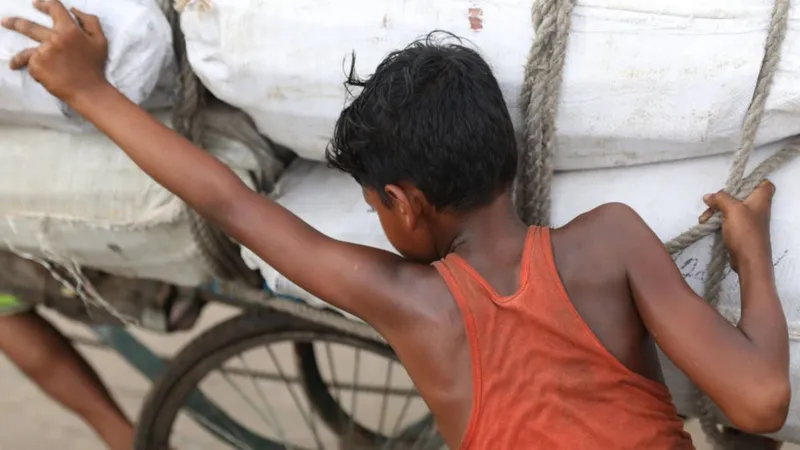EU Supports Legal Measures to Tackle Forced Labor within Supply Chains
European Union member states have reached an agreement on a groundbreaking law mandating companies to ensure their supply chains uphold environmental standards and prohibit forced labor. The Corporate Sustainability Due Diligence Directive (CSDDD) garnered majority support from 17 out of 27 members, with no opposing votes. However, critics contend that the law has been significantly watered down, potentially compromising its effectiveness.
Under the CSDDD, European companies will be obligated to verify that their imported products adhere to environmental and human rights criteria, including the exclusion of child labor. They must also take measures to mitigate potential harm and communicate their findings. Notably, only larger businesses with 1,000 employees or more and a net turnover of at least €450 million will be affected, a concession from the original proposal targeting firms with 500 employees and a revenue of €150 million.
The draft legislation, subject to approval by the European Parliament, is expected to receive support from MEPs. Upon approval, businesses will be granted a transition period to implement the new requirements. The law’s passage follows previous setbacks in February, where objections from countries like Germany and Italy, citing concerns over impact on their industries and bureaucratic burdens, hindered progress.
Business groups, such as lobby group BusinessEurope, have raised alarm over the law’s stringent obligations and potential legal risks for companies. Conversely, environmental and human rights advocates have welcomed efforts to enhance corporate accountability but expressed disappointment with the law’s diluted provisions. Organizations like the World Wide Fund for Nature (WWF) and Oxfam criticized the reduced scope of the law, arguing that it undermines Europe’s commitment to sustainability and human rights.
Despite these criticisms, campaign groups like Anti-Slavery International have lauded the EU’s commitment to prioritizing people and the planet over political and business interests. However, they caution that the law’s quality has been compromised by post-agreement revisions. As stakeholders await further developments, the outcome of the CSDDD underscores the complexities of balancing economic interests with environmental and social responsibilities in global supply chains.












































Comment Template